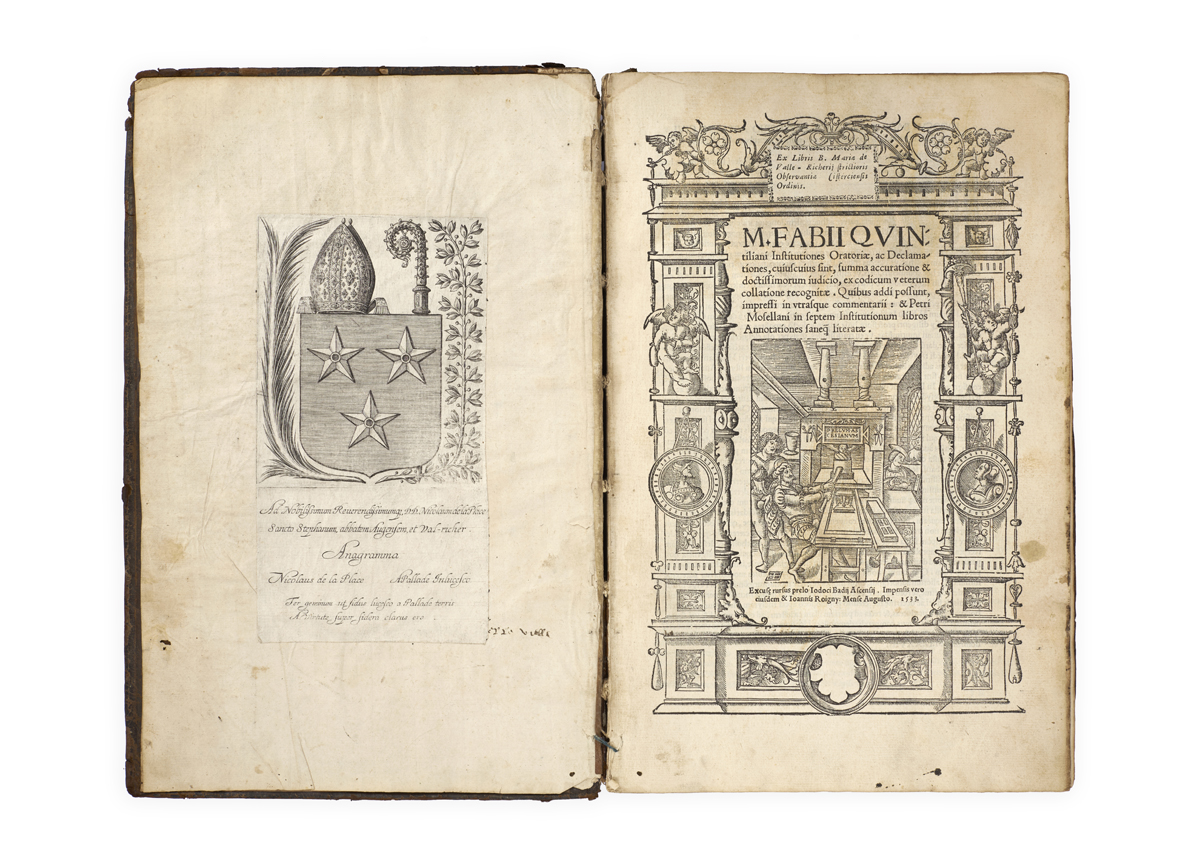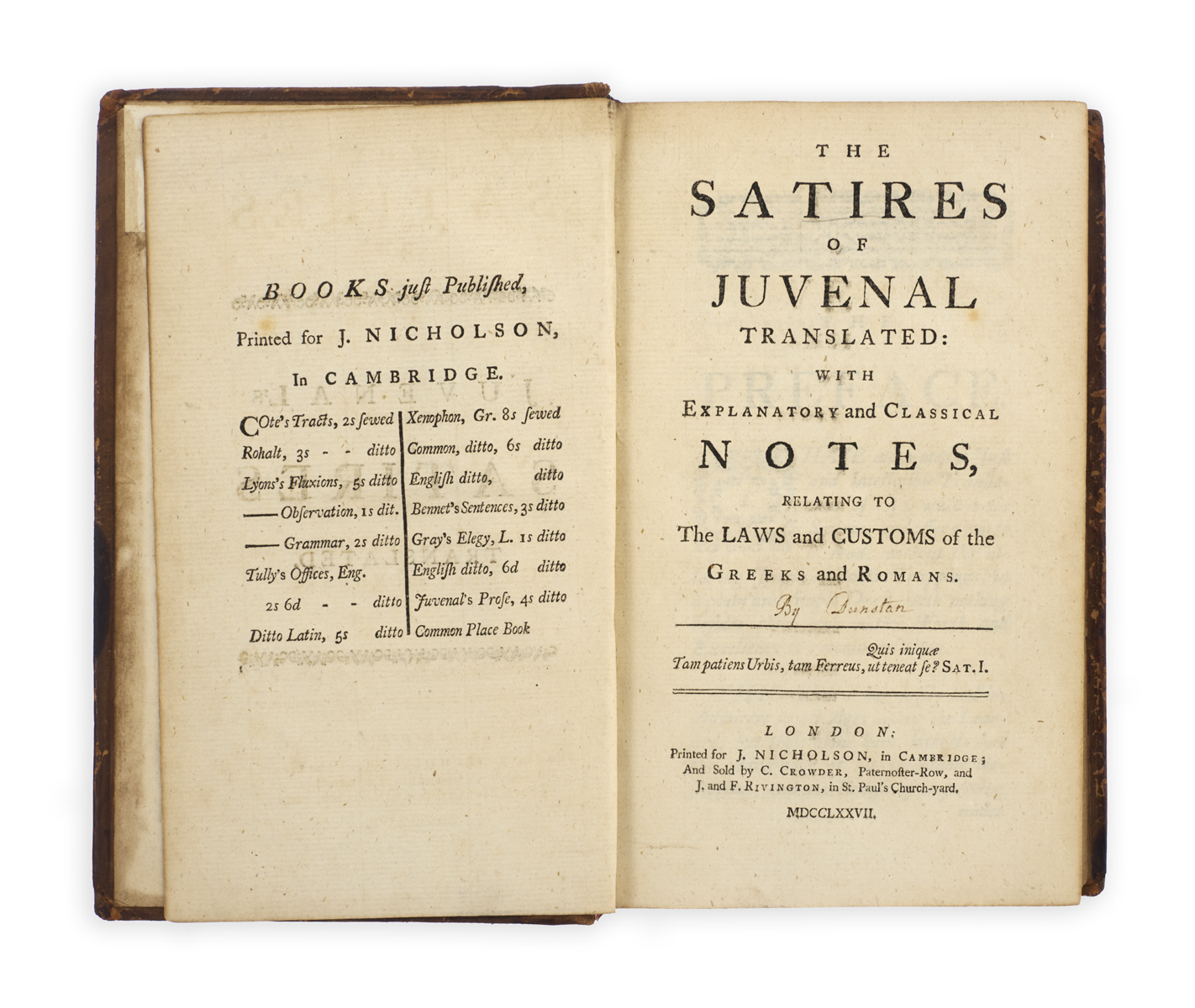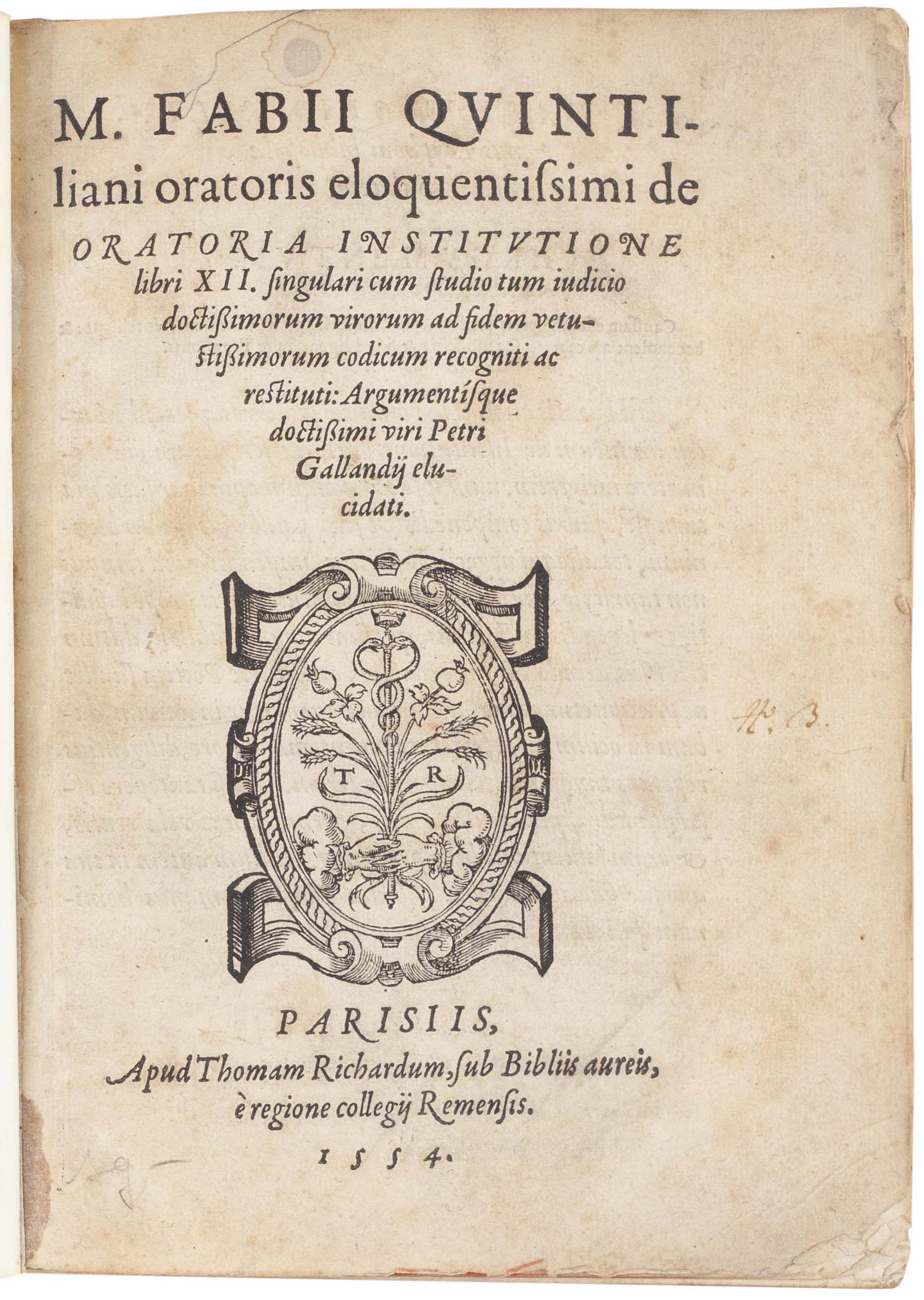
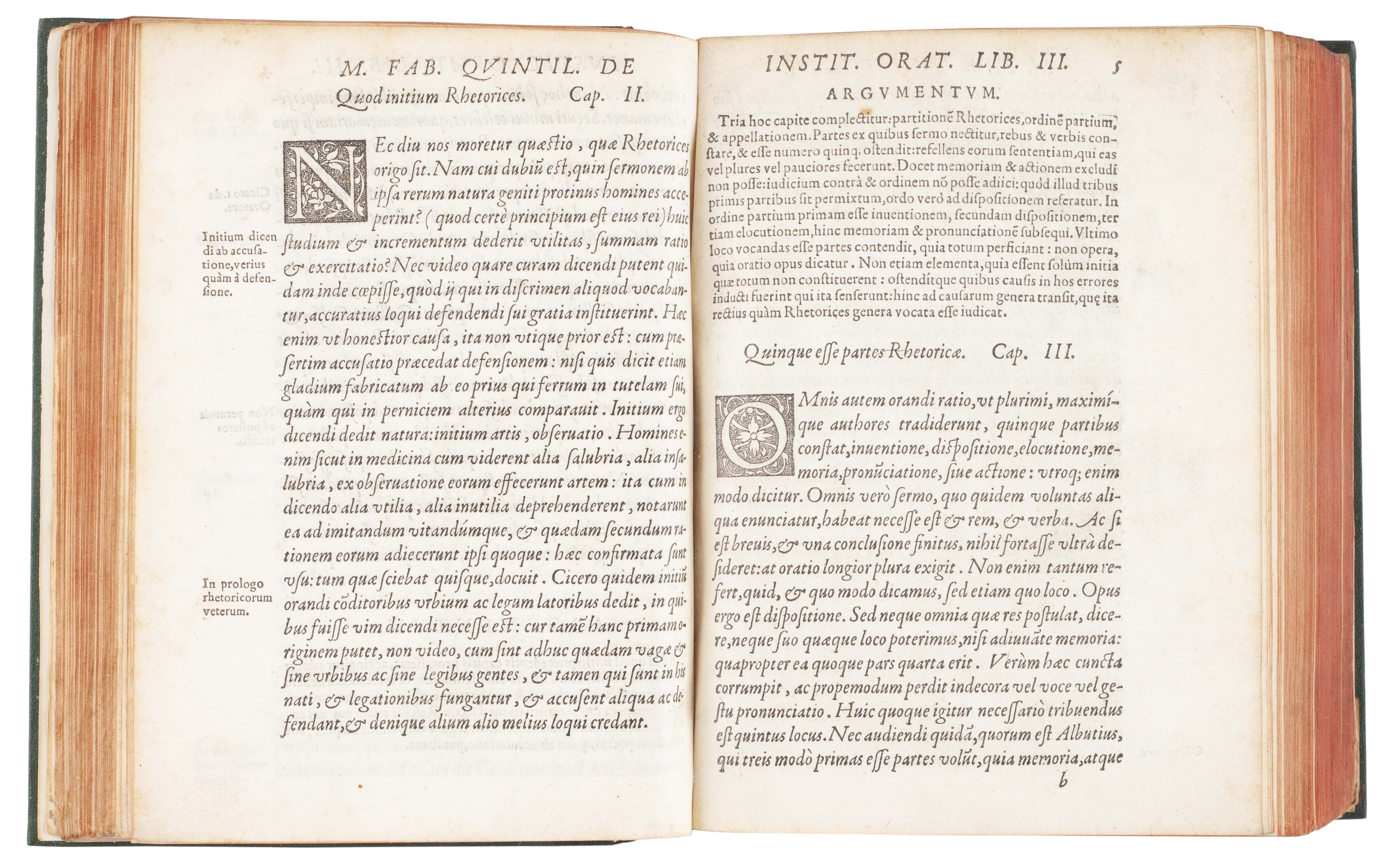
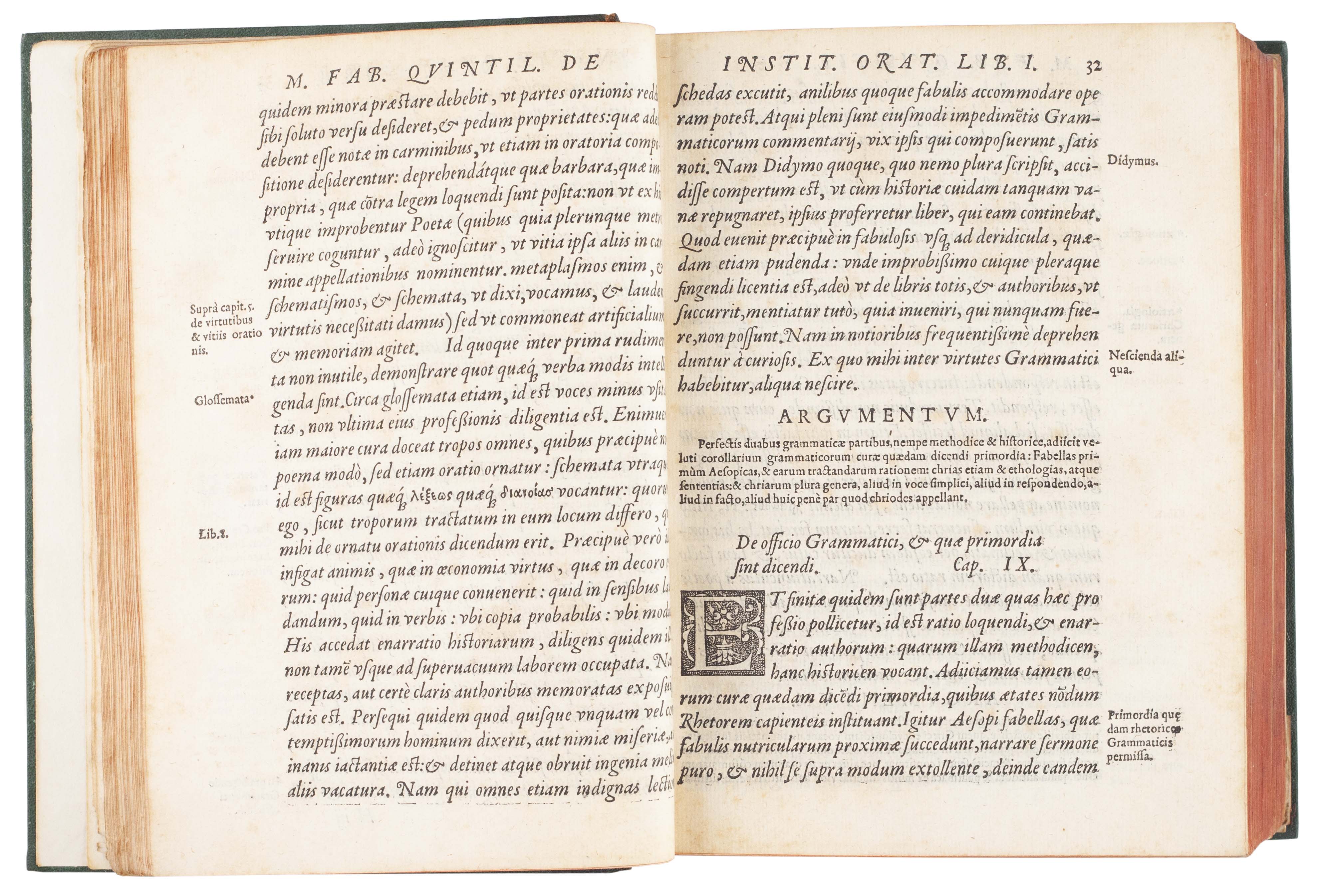
BEST-SELLER STYLE MASTER
QUINTILIAN, Marcus Fabius, and Pierre GALLAND (ed.).
M. Fabii Quintiliani … de oratoria institutione livre XII. singulari cum studio tum judicio doctissimorum virorum ad fidem vetustissimorum codicum recogniti ac restituti argumentisque doctissimmi viri Petri Gallandii elucidati.
Paris, Thomas Richard, 1554 [– 1550-1561].
Four parts in one vol., 4to, ff. 74, 265, [1], 129, lxvi; woodcut Richard device to title, woodcut initials, the parts dated 1554, 1561, 1550, and [s.a.] respectively; occasional soiling or light foxing, first leaf worn along edges, but a very good copy; in modern green morocco-backed boards with green cloth sides, spine lettered directly in gilt, edges stained red.

Added to your basket:
M. Fabii Quintiliani … de oratoria institutione livre XII. singulari cum studio tum judicio doctissimorum virorum ad fidem vetustissimorum codicum recogniti ac restituti argumentisque doctissimmi viri Petri Gallandii elucidati.
A mixed edition of Pierre Galland’s Quintilian, a hugely successful project from its first appearance in 1538. This copy joins the Institutio oratoria with the (now believed to be spurious, if contemporary) Declamationes, and conforms with the copy held at the Arsenal.
Quintilian’s enormously influential Institutio Oratoria ‘covers the complete training of the orator from the earliest preparation by the grammarian to his most mature aspirations for oratorical preeminence’ (The Classical Tradition (2010), p. 827). Quintilian’s portrait of a public speaker, epitomized as ‘vir bonus dicendi peritus’ (a virtuous man expert in eloquence), is founded on the unbreakable unity between probity of character and communication. A skilled orator cannot be spinning lies. The classical ideal of eloquence, minutely detailed and taught by Quintilian, implied, incorporated, and modelled the classical ideal of leadership, as well as providing a blueprint for education which lasted for a millennium.
Although Quintilian was known throughout the Middle Ages, it was in 1416 that the humanist Poggio Bracciolini discovered a complete text at St Gallen. Quintilian thus came ‘to exert a deep and lasting influence on rhetorical theory and practice’ (ibid., p. 829), deeply influencing authors like Erasmus, Melanchthon, Vives, and countless others, including Ben Jonson, Pope, and Goethe.
See French Vernacular Books 89535; see USTC 204247.
